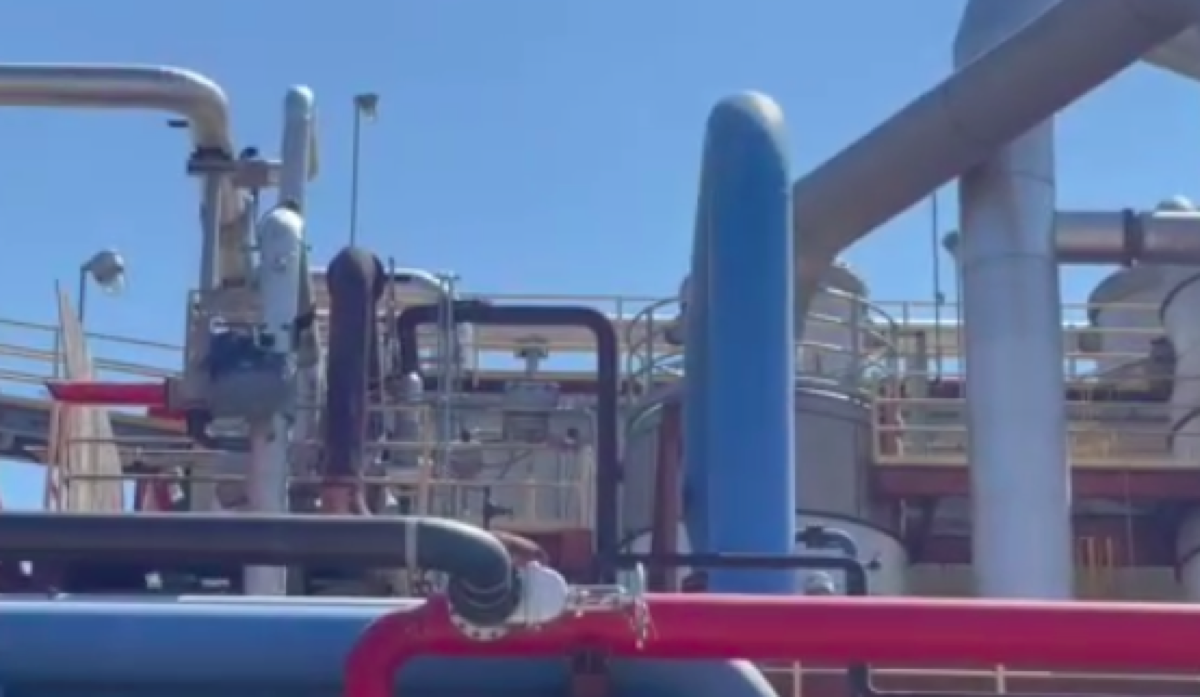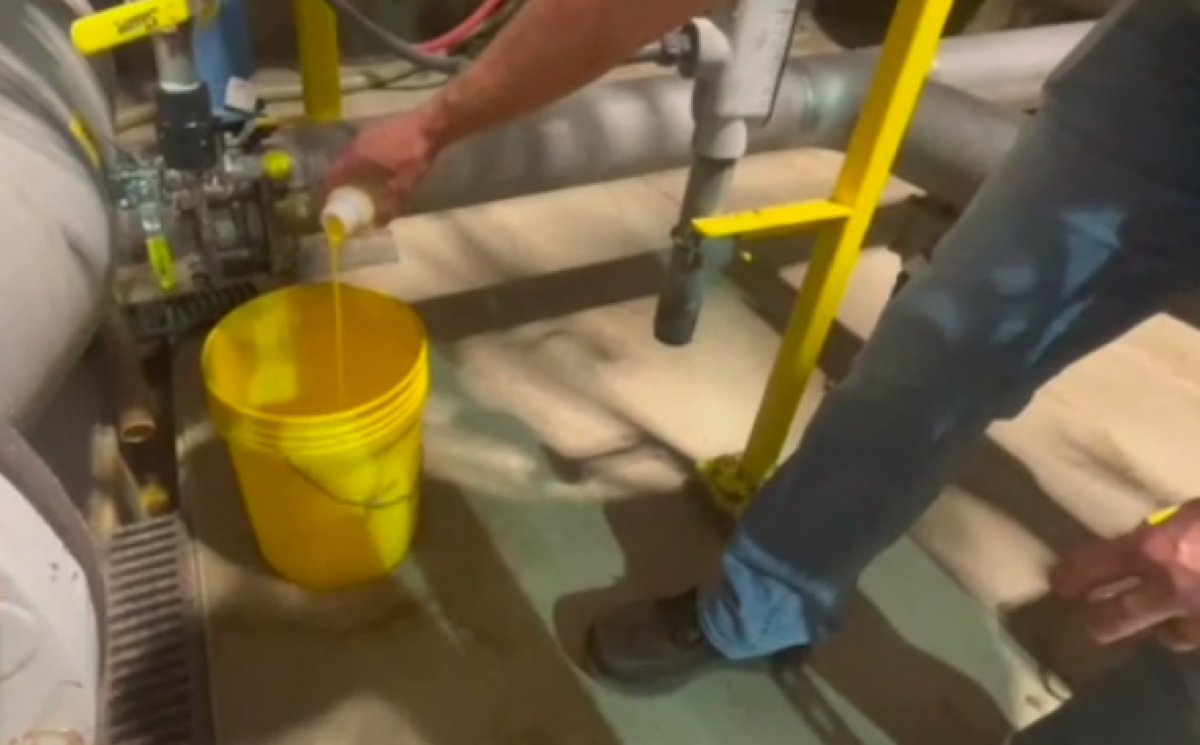Siouxland Energy Cooperative in Sioux Center, Iowa, welcomed virtual field trip participants to learn more about ethanol production. Plant manager Shane Rasset and board of directors member Kelly Niewenhuis shared about what happens at their facility and how they are working to reduce carbon emissions.

“Net zero” means cutting greenhouse gas emissions to as close to zero as possible, with any remaining emissions re-absorbed from the atmosphere, by oceans and forests for instance. Ethanol is cleaner burning than gasoline and provides a 50% reduction in greenhouse gases, reducing carbon emissions in the atmosphere.

At Siouxland, corn is delivered to the plant daily, up to 100 trucks per day. The corn is ground up to give access to the starch inside. Next, hot water and enzymes begin to break down the starch. Yeast is mixed in. “Yeast is the workhouse in ethanol production,” Rasset said. The mash is cooled before going to fermenters, where it sits for 75 hours.
After fermentation, the mixture heads to the beer well where it feeds the distillation process. A decanter uses centrifugal force to remove the solids, wet distillers grain used for animal feed. Distillers corn syrup and corn oil lipids are also feed ingredients. The lipids can be used for renewable biodiesel as well.
In addition to producing environmentally-friendly ethanol, the plant minimizes its carbon footprint in other ways. A steam turbine produces about 25% of the electricity needed on site. Engines burn natural gas to power a generator, producing extra energy to sell to customers. This process generates heat for steam, part of the production cycle.
“We recognize electric vehicles will be part of our transportation system, but it won’t happen overnight. If we are truly serious about decarbonizing our environment, biofuels will be a big part of that,” Niewenhuis said. “To be competitive, we need to continue to improve our carbon index scores.”
Watch the recording of this virtual field trip here.
Our Energy and ethanol curriculum lets your students see the science of ethanol production. Join us later this month for a virtual field trip on Soil health and fertility.